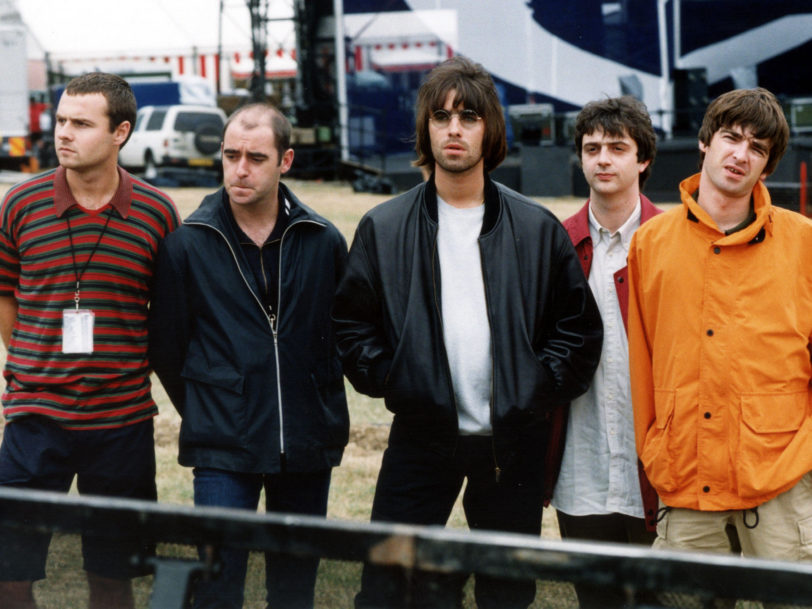We all know that the people who hold the top jobs – our politicians, sportspeople and high-ranking CEOs – are often privately educated and come from a high social class. However, musicians and bands seem to buck this trend. Most of the UK’s most famous artists have come from working-class backgrounds, including The Beatles (whose John Lennon wrote a solo song about it: Working Class Hero), The Who, The Verve and Joy Division. In the 90s, the charts were dominated by working-class bands – Oasis and Happy Mondays among them. The trend was that working-class musicians were more successful. But how did this social status affect their success? Was this due to authenticity? The music? Or just sheer luck?
A working-class hero is something to be
Maine Road, May 1996: a triumphant return home for the biggest UK band since The Beatles. Three years earlier, however, Oasis were just a group of lads on the dole, trying to scrape together a living out of music. This working-class identity was essential to their success: many Oasis fans in the 90s were also working-class people who could relate to their songs’ subject matter. Strengthening the bond, Oasis also spoke and dressed like their fans – Liam Gallagher wore an Umbro tracksuit at the band’s Maine Road gig.
Middle-class bands such as Blur and Radiohead (whose members attended a school with annual fees of £20,000) also achieved success in the 90s, but their sales pale in comparison with Oasis’. Every studio and compilation album released by Oasis, along with the Gallagher brothers’ solo projects, have reached Top 3 in the UK charts; Oasis’ second album, (What’s The Story) Morning Glory?, is the fifth highest-selling UK album ever, while Be Here Now sold 696,000 copies in its first week – the second-highest first-week sales in UK chart history.




